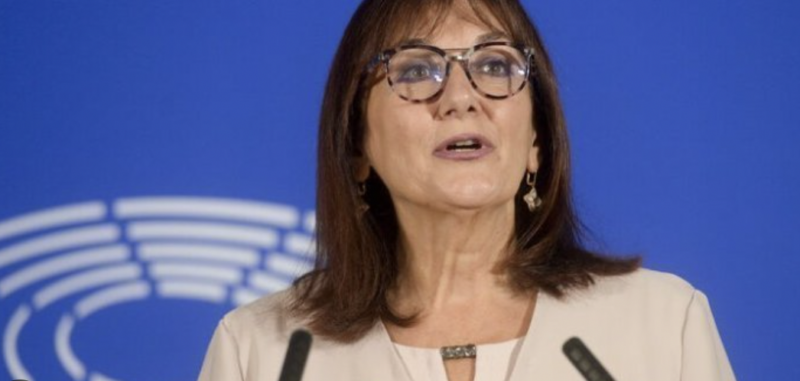Conservative MEPs have slammed the European Commission’s proposed “Demography Toolbox,” accusing it of leaning on increased migration rather than prioritizing policies to raise birthrates and preserve Europe’s cultural identity.
During a presentation to MEPs, Dubravka Šuica, the Commission official responsible for demography and the Mediterranean region, worked to downplay the focus on migration. She described legal migration from third countries as just one of the plan’s four pillars. However, conservative MEPs weren’t convinced, pointing out that the strategy has been in development for over two years and clearly favors immigration as its core solution.
Šuica outlined the four pillars: boosting skilled labor migration, providing affordable childcare to help mothers re-enter the workforce, offering training programs for youth with “useless” degrees, and creating flexible retirement options for elderly workers. Critics, however, argue that these measures barely scratch the surface of Europe’s aging population crisis and plunging birthrates.
At her confirmation hearing last year, Šuica was more forthcoming about the migration pillar. She promoted the creation of “talent partnerships” with third countries, enabling companies across the EU to recruit migrant workers as needed. Šuica emphasized that this system is intended to address labor shortages in specific sectors, though critics fear it will become a slippery slope. They cite the U.S. H-1B visa program as an example of how such systems can be exploited, leading to suppressed wages and unchecked influxes of cheap labor.
Šuica also described Africa’s young population as a “demographic reservoir,” noting that 30% of the continent’s residents are under 25. This sentiment set the stage for a heated debate among MEPs.
“You’re only concerned with demography for economic reasons. For you, Europe is just a marketplace,” said Julien Sanchez, a Patriot MEP from France’s Rassemblement National (RN). He stressed that mass immigration is not a sustainable solution and warned, “We need to solve the problem while ensuring Europe stays European.”
Italian MEP Silvia Sardone (Lega/PfE) pointed to cities in Western Europe where names like Muhammad dominate among newborns. “Our Christian culture is being replaced, and Europe is becoming increasingly Islamized,” she lamented, accusing the left of ignoring the problem. “This is a nightmare, and we’re doing nothing but saying yes to more immigration.”
Some left-wing MEPs, like João Oliveira of Portugal’s Communist Party, pushed back, labeling these remarks as “hate speech.” In response, Spain’s Mireia Borrás (Vox/PfE) countered, “We’re not anti-globalist; we’re the party of common sense and the only ones willing to call things as they are.”
Borrás urged the EU to adopt Hungary’s family policies, which she said provide a model for raising birthrates. Hungarian MEP Pál Szekeres highlighted his country’s system, which includes cheap loans for young families, tax benefits for larger households, and income tax exemptions for mothers of four and young people under 25.
Italian MEP Antonella Sberna (FdI/ECR) also emphasized the importance of family-friendly policies but argued that Europe needs a broader cultural shift. “We need a real cultural revolution that makes childbearing appealing again,” she said.
Zsuzsanna Borvendég (Our Homeland/ESN) echoed this sentiment, warning that Europe’s reliance on migration signals “a path of self-destruction.” She argued for policies that champion the traditional family model as the cornerstone of individual happiness and societal stability.
“Population replacement must stop,” Borvendég declared. “We need to celebrate the family, promote childbearing, and protect the lives that are conceived. This is the only way to ensure Europe’s future.”




